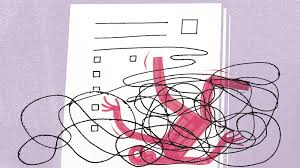Yogendra Yadav writes: On ground in Bihar, Election Commission of India writes a dystopian fiction

Bihar has become the center of a heated political and legal debate due to the Election Commission of India’s (ECI) Special Intensive Revision (SIR) of electoral rolls. The ECI claims the exercise improves voter list accuracy and integrity. However, activist Yogendra Yadav describes it as “dystopian fiction,” exposing confusion, exclusion, and procedural flaws that threaten democratic rights.
Two Contrasting Narratives
The ECI boasts a 98% success rate in the voter list revision. On the ground, the situation looks very different. Yadav attended a public hearing across 19 districts. There, villagers shared stories of confusion and hardship. Many were forced to produce unnecessary documents, such as land ownership certificates, despite being long-time voters.
Women, daily wage earners, and farmers faced the harshest difficulties. Booth Level Officers (BLOs) often failed to visit homes or guide residents. Instead of pre-filled forms with voter details, they distributed blank forms. For many families, multiple visits to local offices meant losing wages and time.
Six Major Failures
Yadav lists six critical procedural failures in the SIR:
- No BLO Visits – Officers rarely visited homes, even though the guidelines required them to do so.
- Unauthorized Distribution – Unverified individuals handed out forms, raising doubts about authenticity.
- Blank Forms Issued – People received blank forms instead of ones with pre-printed details, leading to errors.
- No Submission Receipts – Citizens got no acknowledgment for their submitted forms.
- No Help for Voters – BLOs refused to assist illiterate voters, leaving many confused.
- Fake Submissions – Forms were filled out without voter consent, allowing for fraudulent deletions or updates.
These failures are widespread and not isolated. Yadav warns that the system itself is flawed, risking the disenfranchisement of millions.
The Risk of Disenfranchisement
The SIR puts the burden of proof on voters. They must repeatedly prove their citizenship and residence. This is especially unfair for migrant workers and marginalized groups. In Bihar, about 2.5 crore adults lack the specific documents required.
The ECI also excludes widely used IDs like Aadhaar, ration cards, and voter IDs. For many rural families, obtaining the required paperwork is nearly impossible. Yadav argues that this process could erase a large section of legitimate voters.
Legal and Political Reactions
Civil society groups and opposition leaders have strongly criticized the SIR. Yadav, along with the Association for Democratic Reforms (ADR) and MP Mahua Moitra, has filed a Public Interest Litigation (PIL) in the Supreme Court. They argue that the SIR violates Articles 14, 19, 21, 325, and 326 of the Constitution.
The Supreme Court has responded by asking the ECI to consider widely accepted documents like Aadhaar and ration cards. The next hearing is scheduled for July 28, 2025.
Opposition parties have also launched protests. Tejashwi Yadav and others warn that they may boycott the elections if the SIR continues in its current form. They claim the exercise is an attempt at large-scale voter suppression.
Timing Under Fire
Critics also question the timing of the exercise. The ECI rolled out the SIR during Bihar’s monsoon season (June 24 to July 25). Heavy rains and floods have restricted movement, especially in rural areas. Many residents could not participate because of weather-related disruptions. Opposition leaders argue that the ECI could have chosen a more accessible time.
A Model for Nationwide Rollout?
Yadav fears that the Bihar experiment could become a template for the entire country. If this model spreads, migrant workers, women, and marginalized communities across India could lose their voting rights. He warns that this process changes the very foundation of universal adult franchise. Instead of assuming all adults have the right to vote, the system assumes doubt, forcing people to prove they belong.
Conclusion: A Fight for Democracy
The ECI insists that the SIR will clean voter rolls and ensure fairness. However, the ground reality suggests the opposite. Yadav calls it “an engineered disenfranchisement process” disguised as reform. As the Supreme Court takes up the matter, the verdict will have far-reaching consequences.
This issue is no longer just about Bihar. It is about the integrity of India’s democracy. If unchecked, the SIR could become a tool for voter exclusion across the country. Yadav’s warning is clear: this fight is not about numbers on a list but about the soul of India’s democratic system.






